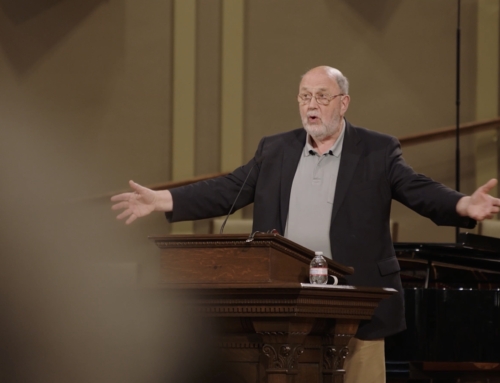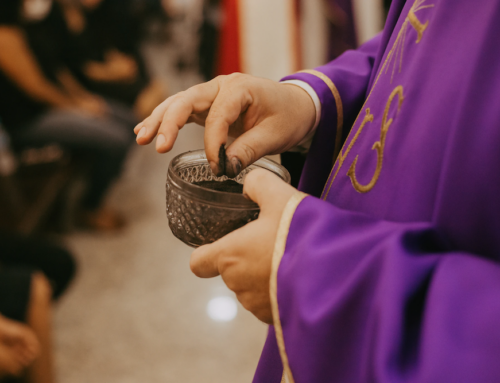We in the United States have come through what many have called the most divisive presidential campaign in history. I am not an historian, so I can’t say if it was the most divisive campaign or not. However, as one who listened and saw how the campaigns went about their business, it was clear that rational thinking was low on the list of ‘essentials’ in political advertising. What we are left with in the United States is a serious level of anxiety and anger on many fronts. Lifetime friends have divided over the past year or so with no plausible pathway to reconcile. And, of course, pastors in congregations are in the middle of the rancor and nastiness trying to hold their people together with a focus that is beyond the campaigns and election. But I know how much of a toll that takes on shepherds of the flock. In the U.S., it is not very hard to find a congregation and a pastor who is ‘on the same page’ politically. Thus, it is not unusual for people to leave their congregations because of political loyalties.
You may have noticed that 2020 was a year when we released several courses focused on Paul’s Epistles to the Corinthians. In August, we even hosted a webcast focused on Paul’s Second Letter to Corinth featuring Prof. Wright. As a New Testament professor, I have loved teaching the Corinthian Epistles to classes. I have found the topics Paul addressed to be especially appropriate during these past years. It is as if the US has mirrored Corinth with its issues and with the difficult intersection between how God’s people handle life and how the rest of the polis encounters the world.
Think about what Paul encountered with the Corinthian church, an infant church that Paul established while spending 18 months there. We notice in the text below from 1 Cor 1:10-17 (KNT) that divisions in the congregation grew in this worldly environment:
Now I must appeal to you, my brothers and sisters, through the name of King Jesus our Lord, that you should all be in agreement, and that there should be no divisions among you. Instead, you should be fully equipped with the same mind and the same opinion.
You see, my dear family, Chloe’s people have put me in the picture about you—about the fact that you are having quarrels. What I’m talking about is this. Each one of you is saying, ‘I’m with Paul!’, ‘I’m with Apollos!’, ‘I’m with Cephas!’, ‘I’m with the Messiah!’
Well! Has the Messiah been cut up into pieces? Was Paul crucified for you? Or were you baptized into Paul’s name?! I’m grateful to God that I didn’t baptize any of you except Crispus and Gaius, so that none of you could say that you were baptized into my name. (All right, I did baptize Stephanas and his household as well. Apart from that, I don’t know if I baptized anybody else.) This is the point, you see: the Messiah didn’t send me to baptize; he sent me to announce the gospel! Not with words of wisdom, either, otherwise the Messiah’s cross would lose its power.
I am certain that when most of us read this section, we can recall our own experiences in congregations. Perhaps you would be able to fill in other names rather than ‘Paul’ or ‘Apollos’ or ‘Cephas’. I certainly can! I have seen congregations divide and during one stage of my career was asked to add ‘Interim Senior Pastor’ to my already ‘full-time’ pastoral work because a local church asked for help and I knew the different people involved. Oh, my.
Although I volunteered for the task, I wasn’t quite ready for the visceral anger and vitriolic speech of people on ‘both sides’ of the church divide. It is never as simple as having ‘two sides’ of an issue in a divided congregation. There are always many, many intermingled reasons for people to take sides. In the situation I was in, it was not uncommon for a staff member to come into my office and tell me how horrible the previous pastor was and why it was essential to abandon all of his tendencies in the ‘new era’ without him.
The next meeting with another staff member would tell stories of how beloved the previous pastor was and how ‘his vision’ was ‘the way forward’ for the congregation. I would be involved in seemingly endless elder board meetings, usually on Monday evenings. One such meeting started at 6:30PM and went on until….well, I don’t know how long it went on because at 1:00AM I announced that I was going home to go to bed! The issues spiraled around the same center of ‘problems’ with the previous pastor or with other people who left the church.
All of these people, whether they were part of those who left or those who stayed were purportedly followers of the same King, Jesus. They professed the same statement of faith and for years shared table fellowship at the Lord’s table together. But now the fissure was so great, they nearly hated each other because of the ‘damage’ they had done. I spent months trying to mend fences and restore trust and goodwill in that congregation. But I knew it would take years for true restoration to take place. They had forgotten what Paul said to the Corinthians. I have often thought of the progression of division to be something like this:
Problems Exist
Possible Solutions Are Proposed
People Embrace Certain Solutions
Parties Are Formed Around Proposed Solutions
Posturing With Anger Becomes the Norm
Division Will Soon Result
Paul was keen on reminding these Corinthian ‘parties’ who had formed positions that seemed linked to key figures in the Christian world. We are not told whether Apollos or Cephas (Peter) ever knew about these factions. But word got back to Paul from ‘Chloe’s people’ that problems were boiling over in the Church at Corinth. Paul does not mince words with the Corinthians. Such divisions must not be part of the people of the Kingdom of God. There is one King. ALL the rest of the people are servants.
Paul later makes the point clear, in 1 Cor 1:26-31:
Think back to your own call, my brothers and sisters. Not many of you were wise in human terms. Not many of you were powerful. Not many were nobly born. But God chose the foolish things of the world to shame the wise; God chose the weak things of the world to shame the strong; God chose the insignificant and despised things of the world—yes, even things that don’t exist!—to abolish the power of the things that do exist, so that no creature could boast in God’s presence. Who and what you now are is a gift from God in King Jesus, who has become for us God’s wisdom—and righteousness, sanctification and redemption as well; so that, as the Bible puts it, ‘Anyone who boasts should boast in the Lord.’
When Paul says that God chose the ‘foolish things of this world’ to shame the wise, it is a thinly veiled reminder that the Corinthians have remained in foolishness, though they could and should be much more than that! They should have God’s wisdom, not the wisdom of this world which leads to division.
Imagine if all people in congregations would embrace this statement from Paul: ‘Who and what you now are is a gift from God in King Jesus, who has become for us God’s wisdom….’ Our brothers and sisters in Christ are ‘gifts from God’, not sparring partners.
My short tenure as ‘Interim Senior Pastor’ showed me that in the seat of ‘power’, whether as a pastor or as an elder, is really a platform for grace and mercy to extend from our own sense of gratefulness for God’s tender mercies. Too often such power is used to promote self-labeled ‘righteous’ positions when, actually, anger and malice are often the driving forces behind such actions.
Paul had no shortage of issues he needed to address with the Corinthians. The Corinthian believers have strayed far from the path marked out by Paul when he was with them.
Our courses covering both letters to Corinth by Paul are wonderful reminders about how to live with one another as gifts of God in our congregations. Problems always exist. But Paul gives great guidance in these letters not only in what he prescribes, but also in the manner by which he deals with these beloved Corinthian brothers and sisters.
David P. Seemuth, PhD
Latest posts by David P. Seemuth, PhD (see all)
- Advent Reflections from the N.T. Wright Online Team - December 5, 2022
- YouTube as Public Reading of Scripture - August 29, 2022
- What I Learned From A Week With Professor Wright - June 16, 2022







